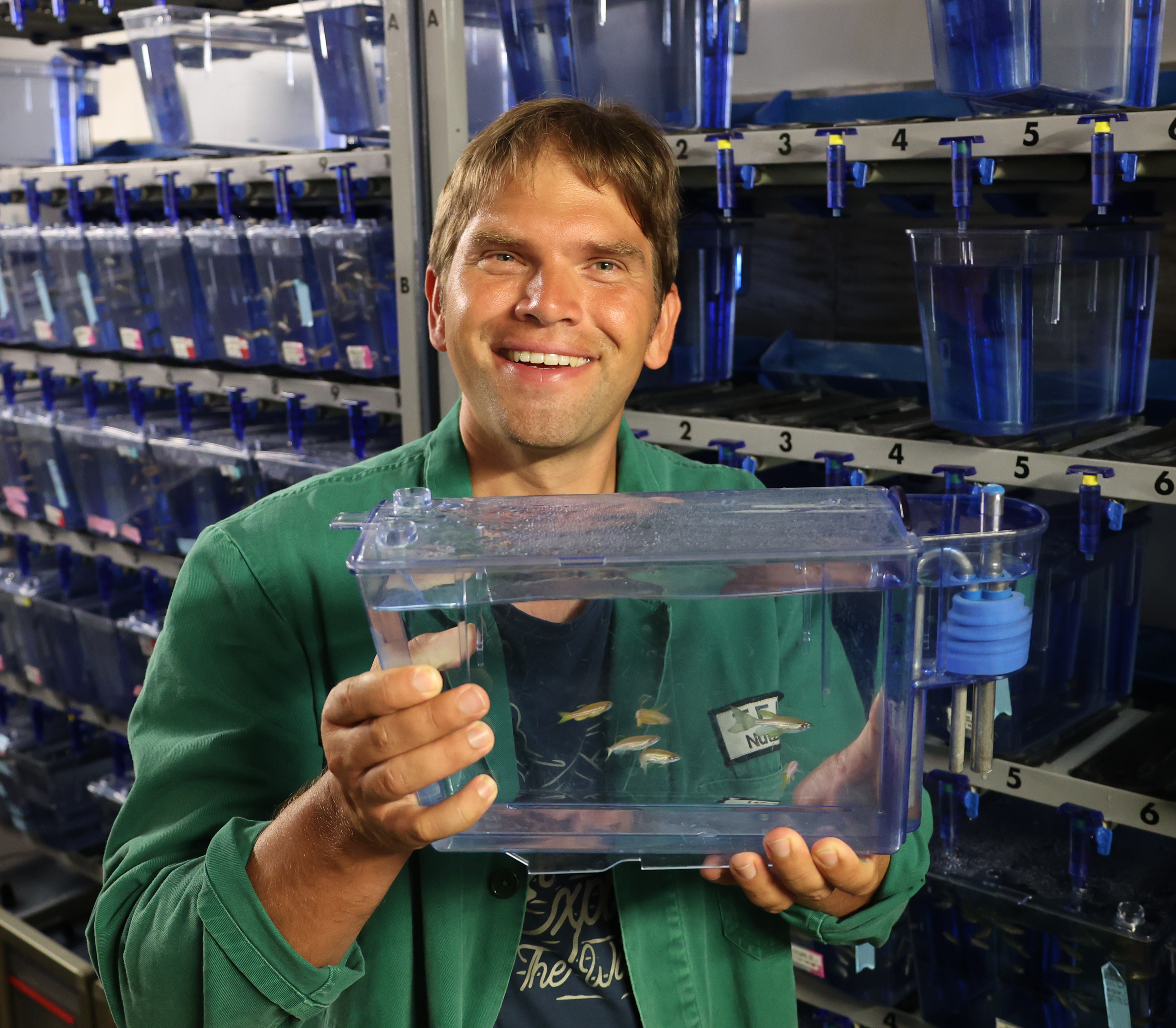
ERC Starting Grant for Armin Bahl
Armin Bahl, professor of neurobiology and zoology at the University of Konstanz receives an ERC Starting Grant for his project "Neural basis of zebrafish collective decision-making". The project is funded with 1.5 million euros. Armin Bahl is also a group leader at the Cluster of Excellence "Centre for the Advanced Study of Collective Behaviour" and a Research Fellow at the Zukunftskolleg.
It is challenging for individual animals to reliably extract and integrate behaviourally relevant information from the natural environment", Bahl explains. "Due to the limited sensory capacity of individuals, many animal species therefore share and evaluate cues collectively, allowing them to solve complex decision-making tasks as a group".
The behavioural algorithms and neural mechanisms that provide the basis for these cognitive abilities remain poorly understood. In many fish species, these behaviours are largely vision-based, and thus provide the opportunity to decipher the underlying general computational principles under well-controlled experimental conditions in the lab. At the same time, powerful neuroscientific techniques can be used that enable new detailed analyses of the neural circuitry that orchestrates behaviour.
Armin Bahl plans to establish the juvenile zebrafish as a model system, as he believes it is optimally suited for studying collective decision-making. "At this intermediate developmental stage, zebrafish offer an excellent compromise between cognitive ability and experimental accessibility. They can temporally and spatially integrate information, they interact socially and you can characterize and manipulate brain activity in intact animals", he says.
Virtual reality experiments planned
With the help of virtual reality experiments, Bahl and his team will initially dissect the algorithmic rules by which juvenile zebrafish make decisions when swimming in heterogeneous groups. Then he intends to characterize the brain activity related to this behaviour.
"Thus, my proposed research in juvenile zebrafish will, for the first time, provide key insights into the behavioural algorithms and neural mechanisms of how individual animals and animal collectives acquire sensory information and make complex decisions", Bahl summarizes, for whom the award is an "incredibly happy surprise". "I feel deeply honoured to receive this prestigious award, which will enable my group to break new ground and add exciting neuroscientific perspectives to the study of complex decision-making and collective behaviour".
